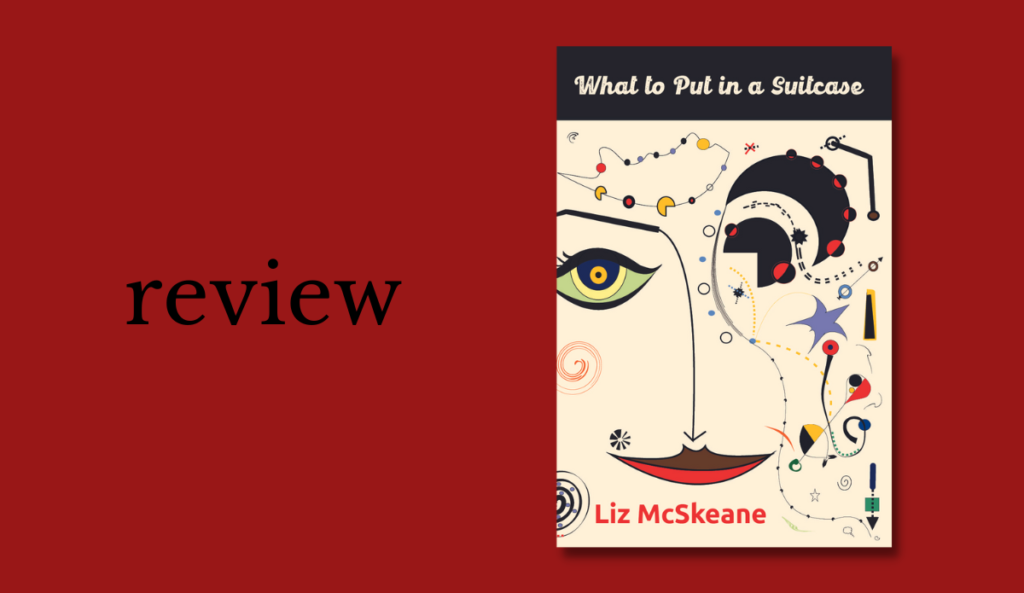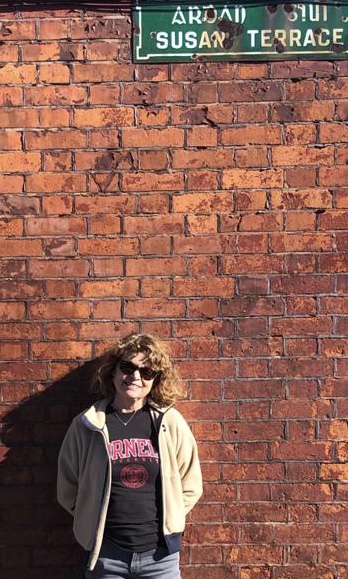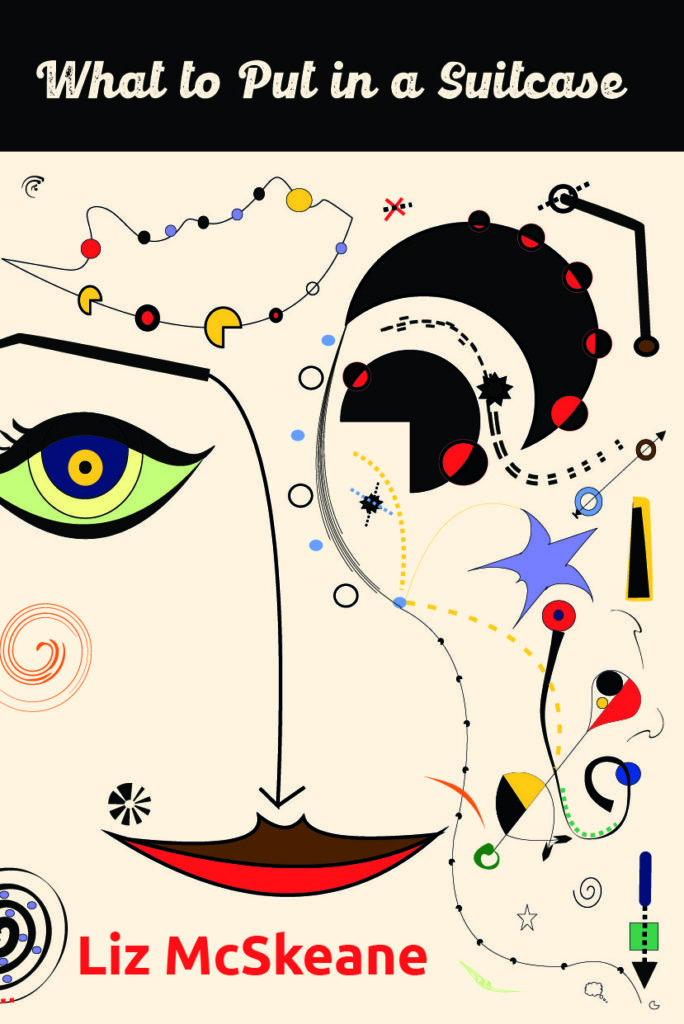
What to Put in a Suitcase|Liz McSkeane|Turas Press|9781913598372|€14
by Susan McKeever
In these sixteen stories by Liz McSkeane a cast of unremarkable characters are placed in challenging situations; they ponder what course of action to take, their internal monologues conveying thought processes that percolate through the narrative, in a spare style of writing devoid of hyperbole or drama.
Female vulnerability
Certain themes link the stories, for instance, female vulnerability: in Regression Analysis, a woman walks down a deserted, unlit hospital corridor on a grey Sunday afternoon on her way to the car park, uncertain that she is going the right way.
A man materialises ahead of her and thoughts flood through her mind, intensifying as the story progresses to her irrational planning on how she will escape from this man who may become her attacker.
In Underground, a woman sways in a crowded Tube carriage hurtling through London, while an unseen man insistently feels her up.
And in Reprieve, a woman suspects she has breast cancer, feeling a ‘thickening’ in her left breast, but despite three visits to a consultant, her anxiety cannot be assuaged by the doctor’s assurance that there is really nothing wrong.
Homelessness
The theme of homelessness is examined in Samaritan and A Hot Coffee – again, stories with female protagonists, neither of whom, despite their efforts, succeeds in helping the people they encounter.
In Samaritan, there is the clumsy attempt of a woman to help homeless Carole in Dublin by asking her if she’s an alcoholic. Carole replies in amazement: “I’m not just an alcoholic. I’m a chronic alcoholic.”
Moments of wit like this lighten the gloom pervading many of the stories.
Emigration
Emigration is studied in the title story, What to Put in a Suitcase. An official describes to a group of people – whether or not they are war refugees is unclear – what they should put in the single suitcase each is allowed on the transport to a destination unknown. A long list is progressively edited as the official receives updates and reconsiders what is essential.
Suddenly, they are not allowed to bring phones or laptops. Each needs a first-aid kit.
Instead of cash, they are advised to bring a bag of weed, which could be ‘the best currency’. Boiled sweets; high energy protein bars. Lastly, what about a weapon – a knife, a gun, a garrot or a blunt instrument – for self-defence? Again, a flash of bleak, Kafkaesque humour.
Skilful and spare
In Lessons, set in Northern Ireland on the day of John F. Kennedy’s assassination (I am guessing), a young Catholic girl goes out to play and teaches the ‘wee ones’ sitting on the wall how to make the sign of the cross. But she doesn’t realise that they are ‘proddy-dogs’ while she is a ‘catty-cat’ and an angry father, coming upon the scene, roughly upbraids her, to her complete bewilderment.
McSkeane’s writing is skilful and spare, in a Shaker-ish fashion; this can occasionally lead to a disconnection from the characters and what is happening to them, giving a strange sense of dissatisfaction. Of course everyone will have different responses to the individual stories in this collection— and for me the stand-out story is Ambush.
An intriguing premise
Set on a street of Corporation houses in 1940s North Dublin, we are introduced to the different families, and their children. The Byrne boys, Eoin and Fergus, described as ‘boisterous’ and prone to playing pranks, get on the wrong side of a hoity-toity neighbour who feels her family is a cut above the others on the street.
In a series of relatively innocent, but irksome incidents involving the two, a perfect storm is reached with tragic, unthinkable consequences for the boys. It is clear that this neighbour, Mrs Glynn, is somehow responsible for their fate.
McSkeane’s book is intriguing, with an interesting premise for an anthology—reading her stories provides food for thought on how we might act under similar circumstances.

Susan McKeever is an editor, writer and ghostwriter for several Irish and international publishers and authors. She works from her home in the red-brick heart of Dublin’s Portobello. @MckeeverSusan, susanmckeever.biz












